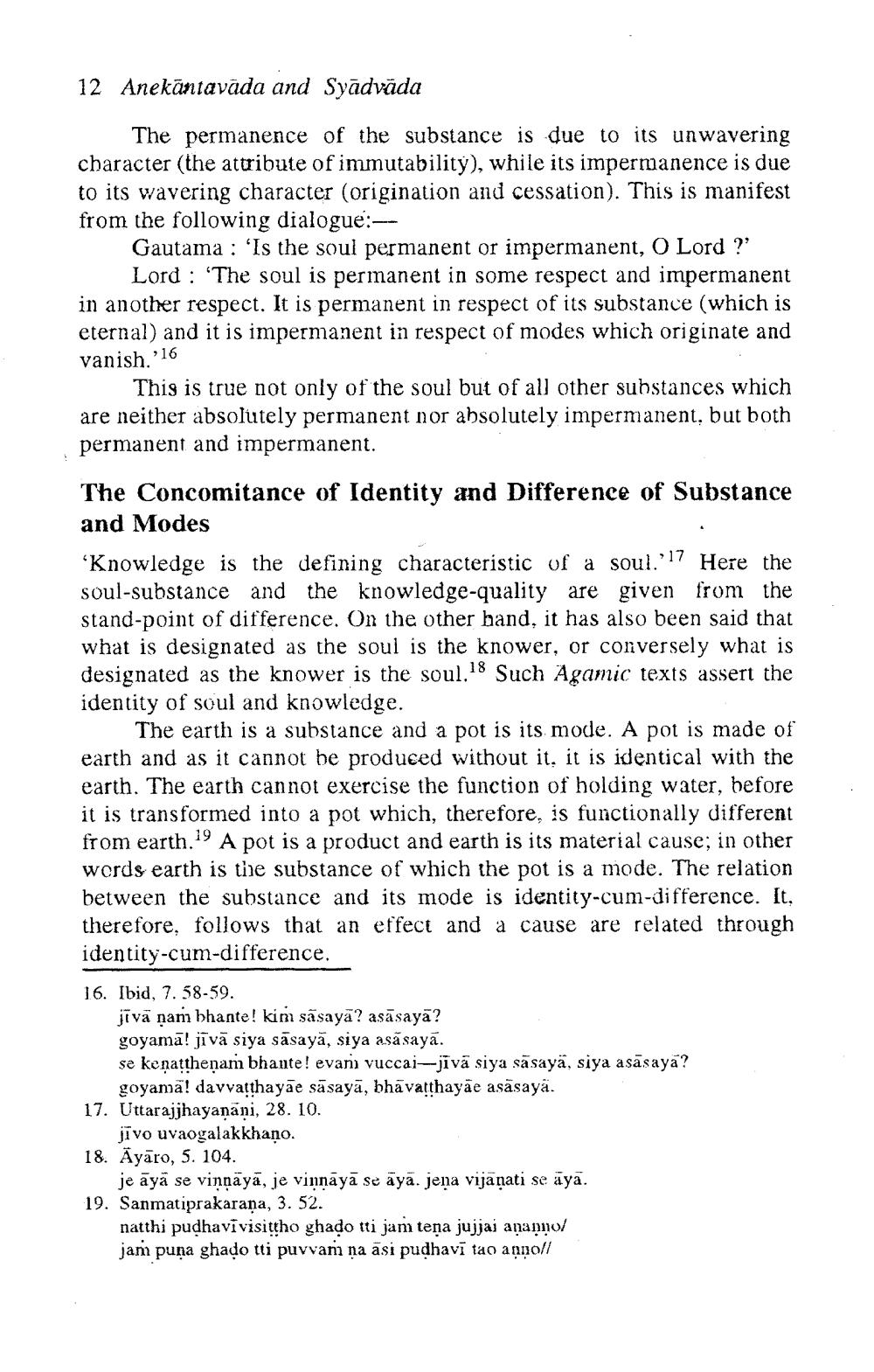________________
12 Anekantavāda and Syādväda
The permanence of the substance is due to its unwavering character (the attribute of immutability), while its impermanence is due to its wavering character (origination and cessation). This is manifest from the following dialogue:-- Gautama : 'Is the soul permanent or impermanent, O Lord ?'
d: The soul is permanent in some respect and impermanent in another respect. It is permanent in respect of its substance (which is eternal) and it is impermanent in respect of modes which originate and vanish.'16
This is true not only of the soul but of all other substances which are neither absolutely permanent nor absolutely impermanent, but both permanent and impermanent.
The Concomitance of Identity and Difference of Substance and Modes
Knowledge is the defining characteristic of a soul.'17 Here the soul-substance and the knowledge-quality are given from the stand-point of difference. On the other hand, it has also been said that what is designated as the soul is the knower, or conversely what is designated as the knower is the soul.18 Such Agamic texts assert the identity of soul and knowledge.
The earth is a substance and a pot is its mode. A pot is made of earth and as it cannot be produced without it, it is identical with the earth. The earth cannot exercise the function of holding water, before it is transformed into a pot which, therefore, is functionally different from earth. A pot is a product and earth is its material cause; in other words earth is the substance of which the pot is a mode. The relation between the substance and its mode is identity-cum-difference. It, therefore, follows that an effect and a cause are related through identity-cum-difference. 16. Ibid, 7. 58-59.
jīvā nani bhante! kim sāsaya? asāsaya? goyama! jīvā siya sāsayā, siya asāsaya. se keņatthenam bhante! evanı vuccai-jīvā siya sa saya, siya asāsaya?
goyama! davvatthayāe sāsayā, bhāvatthayāe asasayä. 17. Uttarajjhayanani, 28. 10.
jīvo uvaogalakkhano. 18. Ayāro, 5. 104.
je āyā se vinnäyā, je vinnāyā se āyā. jena vijanati se āya. 19. Sanmatiprakarana, 3. 52.
natthi pudhavivisittho ghado ti jam tena jujjai anamo/ jam puņa ghado tti puvvam na asi pudhavi tao annoll




